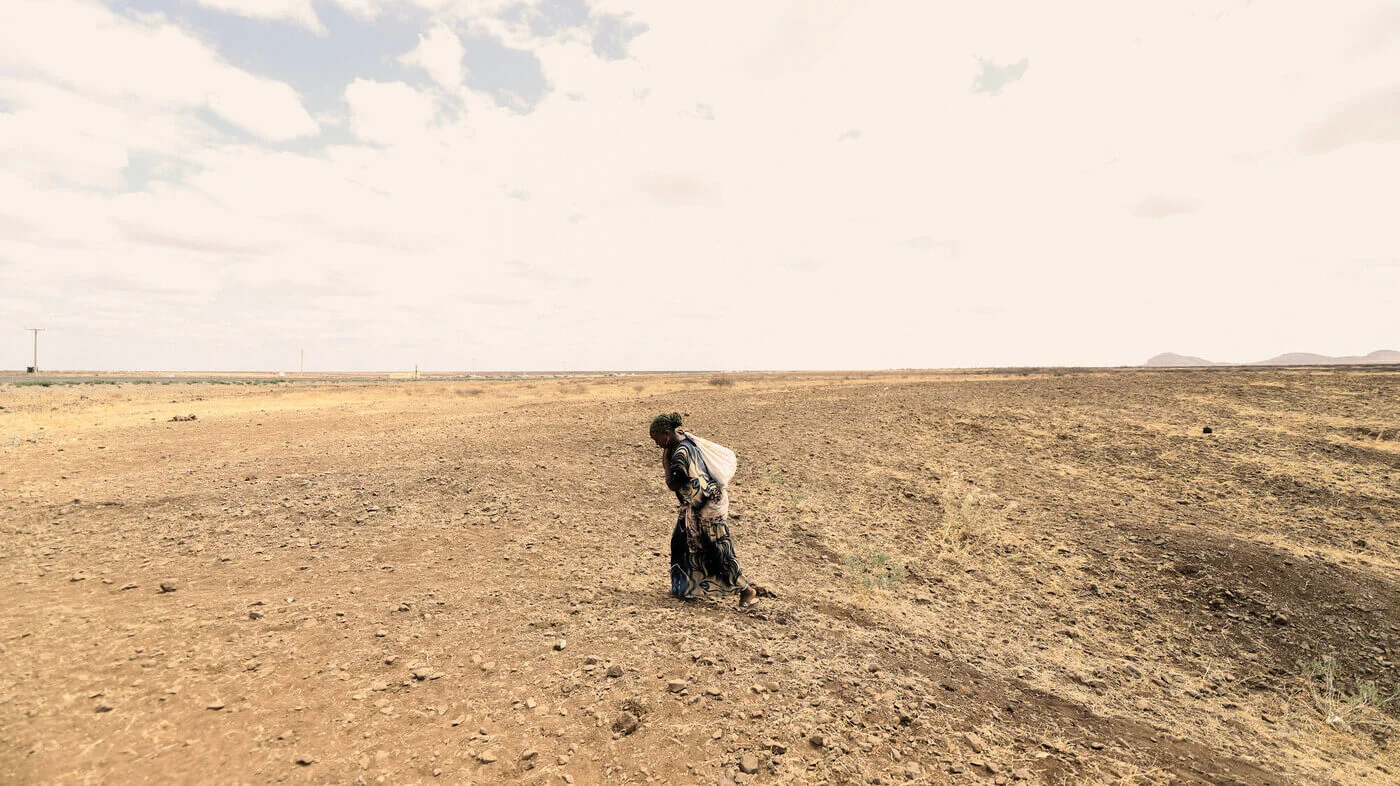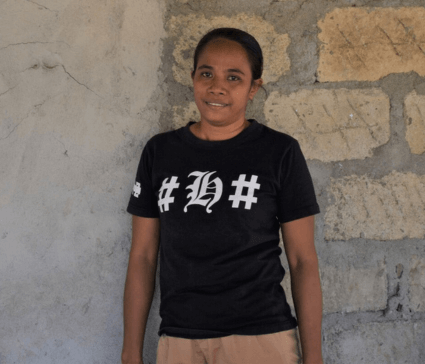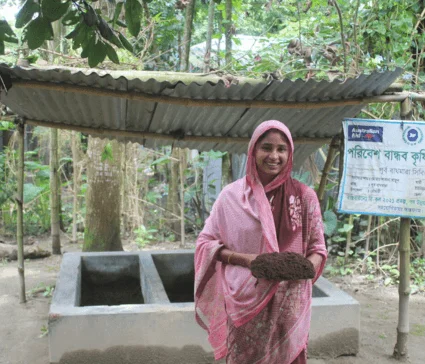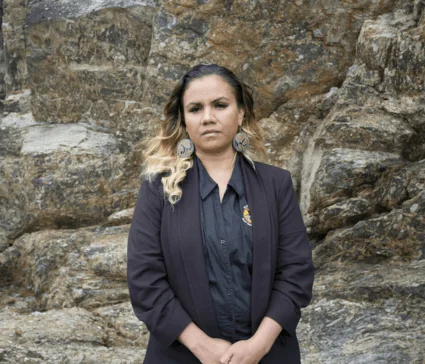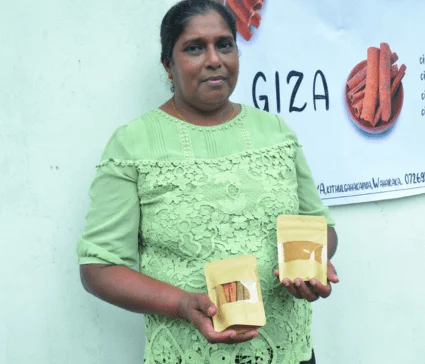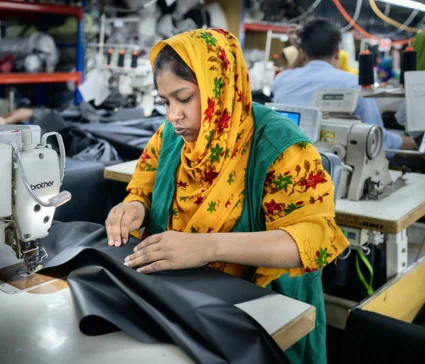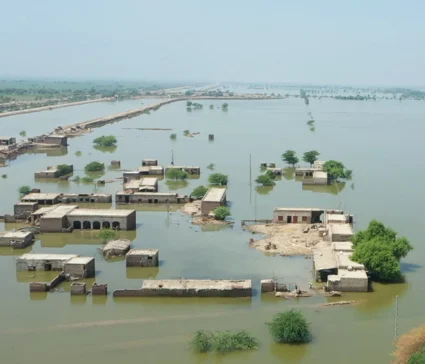Poverty
What is poverty?
A person living in poverty lacks the money and resources to live life to their full potential.
People experiencing poverty may not be able to meet basic needs for food, water, shelter and healthcare.
Poverty is usually defined by how a person’s income compares to the rest of the population. There are different formulas for determining poverty levels around the world. In Australia, the poverty line is set at half the median income level, which is $489 per person per week.
While the definition of poverty relates to low-income levels, poverty is caused by more than a lack of money. Poverty is human-made and is caused by injustice. The unfair treatment of people – often based on their gender, race or religion – means they have unequal access to resources, opportunities and services. This power imbalance also means they are unable to voice their concerns or contribute to the decisions that impact their lives. This is how the vicious cycle of poverty continues.
Globally, anyone who earns less than USD $2.15 per day is considered to be living in extreme poverty. Thanks to ambitious partnerships like the Millennium Development Goals and the Sustainable Development Goals (see more below), the world has made steady progress on reducing extreme poverty. But in 2020, the global poverty rate increased for the first time in decades because the COVID-19 pandemic hit the world’s poorest people the hardest.
Right now, around 700 million people around the world live in extreme poverty. Therefore, we are not on track to achieve the Sustainable Development Goal of ending poverty by 2030.
What are the effects of poverty?
The effects of poverty are devastating. A child born into poverty can have a very difficult life. Their family may not have enough resources to meet their basic needs. They may miss out on eating healthy food, having a safe home and going to school. If they do attend school, they may feel shame or embarrassment about not having school supplies or the same resources as their peers. This may impact their ability to make friends.
Low-income families often experience financial stress, which may harm their relationships and mental health.
In areas with a lack of affordable housing, people experiencing poverty may be forced to live in cramped or unsafe housing.
Poverty also leads to terrible health outcomes. A person living in extreme poverty has poorer physical and mental health and a lower life expectancy.
Can poverty be overcome?
We believe that in a wealthy world, poverty is unjustifiable and preventable, that the present state of inequality and injustice must be challenged, and that with the right help, people can change their lives for the better. Up until 2020, the world was making strong progress on reducing poverty. The COVID-19 pandemic stalled our progress, but we know how to get back on track.
Oxfam is working to address poverty and injustice around the world. We work with local partners and communities so more people can gain the skills they need to earn an income. We advocate for fairer workplaces that pay a living wage, and we are helping to dismantle unfair systems that keep people trapped in poverty.
We won’t stop until everyone has a fair chance to live a decent and dignified life.
Poverty around the world
- The extreme poverty rate is USD $2.15 per day (World Bank).
- More than one billion people were lifted out of poverty from 1990 to 2015. (United Nations).
- 700 million people around the world live in extreme poverty (World Bank).
- 575 million people are likely to be living in extreme poverty by 2030 (United Nations).
- One in three people around the world live with moderate to high food insecurity (United Nations).
- A woman dies every two minutes from causes related to pregnancy and childbirth (United Nations).
- One in five young women are married before they turn 18 (United Nations).
- In 2022, 2.2 billion people did not have access to safe drinking water (United Nations).
- In Australia, the poverty line is set at 50% of median income, or AUD $489 per person per week (ACOSS).
- In 2022, more than one in eight Australians lived below the poverty line, or 3.3 million people (ACOSS).
- In 2022, one in six children in Australia lived in poverty, or 760,000 children (ACOSS).
- 3.7 million households in Australia experienced food insecurity in 2022 (Foodbank).
What does tackling poverty look like?
Every day, Oxfam works with communities and local organisations to help people identify and overcome the causes of poverty. Below are some stories about our work tackling poverty around the world:
Meet Ana in Timor-Leste
Opportunities for women to earn an income can be limited in remote Timor-Leste. Life is even harder for women like Ana, who is living with a disability. Joining a savings group supported by Oxfam helped Ana to achieve her dream of saving enough money to open a business.
Learn moreMeet Shabana in Bangladesh
Bangladesh is already feeling the impacts of climate change, including severe storms and rising sea levels. Oxfam has been working with national and local organisations to build community resilience to climate change, helping people like Shabana to earn a reliable income and gain leadership skills.
Learn moreMeet Kayeleen in Yuin Country
Oxfam has been working with indigenous communities along the New South Wales coast to advocate for governments to support Aboriginal cultural fishing. One of the clearest and strongest calls for change came from Kayeleen Brown.
Learn moreMeet Seetha in Sri Lanka
Inequality and discrimination are widespread in Sri Lanka. Low income levels mean families struggle with high food prices. Oxfam and our partners are working with hundreds of farmers and small business owners to help them boost their income.
Learn moreMillennium Development Goals
In 2000, the United Nations adopted the Millennium Development Goals. These were a set of eight goals for low-income countries to reach in order to improve global development by 2015.
The first goal set out in the Millennium Development Goals was to eradicate extreme poverty and hunger. Great progress was made in this period, but not all goals were achieved.
Sustainable Development Goals
In 2015, the Sustainable Development Goals replaced the Millennium Development Goals. The Sustainable Development Goals are a more ambitious set of 17 goals, each with specific targets for countries to work towards to improve the environment and global prosperity by 2030.
The first goal set out in the Sustainable Development Goals is to end poverty. This goal influences all the other Sustainable Development Goals.
How is Oxfam fighting poverty?
In this wealthy world we live in, poverty is completely unjustified. It is absurd that so many people live in poverty while the rich keep getting richer.
That’s why Oxfam is part of a global movement of people working to eliminate poverty by tackling inequality. Working with partners, allies, communities and our supporters, we are changing the world for the better.
Our long-term development projects work with communities to overcome the challenges they identify, and to implement the solutions they believe will work for them. Our advocacy work demands that people in positions of power are held accountable to the people they serve. And our humanitarian work assists those in life-threatening crises such as conflicts and disasters.
Poverty leads to a lack of life’s necessities, such as food, water, education and healthcare. So, we are also working with local communities to improve access to these vital resources and ensuring everyone benefits from them.
How can I support Oxfam’s work fighting poverty?
There are so many ways that you can join us to fight poverty and overcome injustice. Here are just a few examples:
Be a conscious consumer
Think about what you are buying and how it impacts the planet and the people involved in its production. You can also sign Oxfam’s petition to demand a living wage for the women who make our clothes.
Learn moreVolunteer your time and skills
Volunteering allows you to use your time and skills to support a cause you care about. Sign up to be an Oxfam volunteer and help in our offices or at events like the Melbourne International Comedy Festival.
Sign up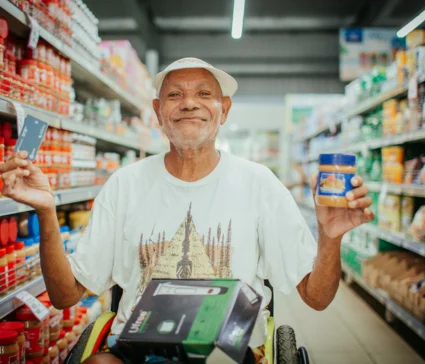
Donate
Overcoming global poverty takes time, skill and money. You can support Oxfam’s work tackling poverty by donating to Oxfam’s work.
Sign upBe informed
Find out more about Oxfam’s work seeking climate justice, gender justice, economic justice and First Peoples’ justice.
Learn moreLearn more about poverty
One of the best ways to fight poverty is to learn about the challenges facing people living in poverty around the world, and share your knowledge with others. Have a look at our resources about poverty to find out more.
How much do you know about poverty quiz
From unequal income, economic opportunities and access to basic services; to the unequal impacts of climate damage internationally – inequality causes of poverty. Take our short quiz to find out how much you know about poverty.
Made in Poverty: The True Price of Fashion (2019)
This report exposes an investigation into the supply chains of big Australian brands. It uncovers how they contribute to the hardships experienced by workers — primarily women who are struggling to earn a living wage.
More Coal Equals More Poverty (2017)
Australia’s climate and energy policies profoundly affect the prospects for Australians and communities around the world. This report outlines recommendations for moving towards a renewable energy future.
Frequently asked questions
What is poverty?
A person living in poverty lacks the money and resources to live a full life. They may not be able to meet basic needs for food, water, shelter and healthcare.
What is extreme poverty?
Anyone who earns less than USD $2.15 per day is considered to be living in extreme poverty.
How many people live in extreme poverty?
Right now, it is estimated that around 700 million people around the world live in extreme poverty (World Bank).
What is the poverty line?
The poverty line is a measurement of income levels to determine at what point a person is living in poverty. The poverty line is generally set at half the median household income of the population.
What is the poverty rate?
The poverty rate is the ratio of the number of people in a particular group whose income falls below the poverty line.
What are the health impacts of poverty?
A person living in extreme poverty has poorer physical and mental health and a lower life expectancy. Poverty leads to poor health because people living in poverty may not be able to access immunisations, healthcare, healthy food or safe drinking water. They may lack the educational opportunities to learn how to keep themselves in good health.
What is the poverty line in Australia?
In Australia, the poverty line is AUD $489 per person per week, which is 50% of median income (ACOSS).
What is the poverty rate in Australia?
In 2022, more than one in eight Australians lived below the poverty line, or 3.3 million people (ACOSS).
What is the child poverty rate in Australia?
In 2022, one in six children in Australia lived in poverty, or 760,000 children (ACOSS).
What is the median household income in Australia?
The 2021 Census found that the median personal income for Australians was AUD $789 and the median household income was AUD $1,770 (ABS).
